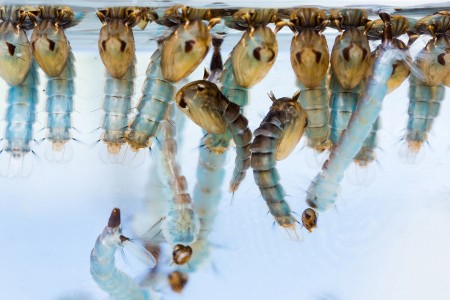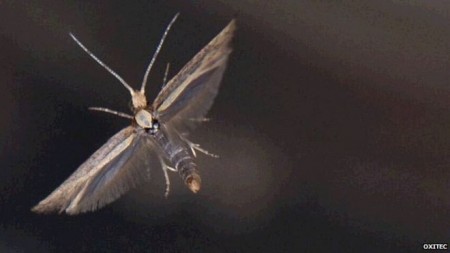December 25, 2015 – It may prove to be the best Christmas present ever for populations in countries where malaria and dengue fever are rampant. The British government, in particular the House of Lords Science and Technology Committee, in a recent report is recommending the use of GMOs in the form of insects not only to combat disease but also to help farmers control and eliminate crop-destroying insect pests that cost the industry billions.
In the report it states, “The sheer disease burden means that all avenues should be explored, and the positive outcome from Oxitec’s dengue fever field trials should be capitalized on. This potential must be explored; it would be a mistake not to pursue GM insect technologies for a range of potential applications.”
The Oxitec referred to in this quote, is the company spun out from the research laboratories of Oxford University, that developed the GM insect technology. Oxitec was recently acquired by Intrexon, a U.S. company focused on synthetic biology, cellular therapeutics and the genetic engineering of microbes for use in industrial applications. They intend to launch global trials using Oxitec GM insects.
Why?
Because today dengue fever is the world’s fastest growing insect-borne disease, putting half of the world’s population at risk. It has spread from Mexico into the Southern United States and climate change is facilitating its move into more temperate latitudes.
In sub-Saharan Africa insect-borne malaria is a leading cause of death infecting more than 200 million. In 2014 alone it was responsible for 670,000 deaths.
Field trials of limited size using sterile mosquito populations have been tried in the Cayman Islands and Brazil with some success in reducing Aedes aegypti, the mosquito responsible for the spread of both dengue and malaria.
Recently I reported on work being done at University of California San Diego to introduce a molecular motor into mosquito populations to spread anti-malaria genes. The University research is still waiting on getting Food and Drug Administration approval for a limited trial release. Oxitec is ready to go with its GM mosquitoes and has received Brazilian government approval for field trials.
If Oxitec get the green light from more jurisdictions for malaria and dengue mosquito release it will be able to demonstrate some distinct advantages. First its GM insects are modified to be self limiting. When they mate with the natural mosquito population the offspring (see image of mosquito pupae below) die before they emerge as adults. Second, the insects contain a fluorescent bio-marker so their dispersal can be tracked easily throughout an area after release. That makes it easy to do a census to measure impact.
Controlling the spread of insect-borne diseases is only one use of Oxitec GM technology. There is huge upside for agribusiness. The company has been genetically modifying a number of common insect pests responsible for more than $4 billion U.S. in annual crop losses. These are the diamondback moth (seen in the image below), the spotted wing drosophila and the Mediterranean fruit fly. The latter Oxitec produced GM insect has been approved for field trials in Brazil and Western Australia where the fly has been particularly destructive.
Are there unintended consequences in using genetically modified insects to combat disease? For those who fear GMOs, it should be understood that the technology has been engineered to be self-limiting. There is nothing in the engineered DNA that threatens any insects or animals that may prey on Oxitec modified species. Self-limiting is in reproductive capacity exclusively, and the fluorescent bio-marker is non-transmissible since it is bound within the insect’s DNA. So no birds will start to fluoresce after eating a GM mosquito, fruit fly or moth.




















